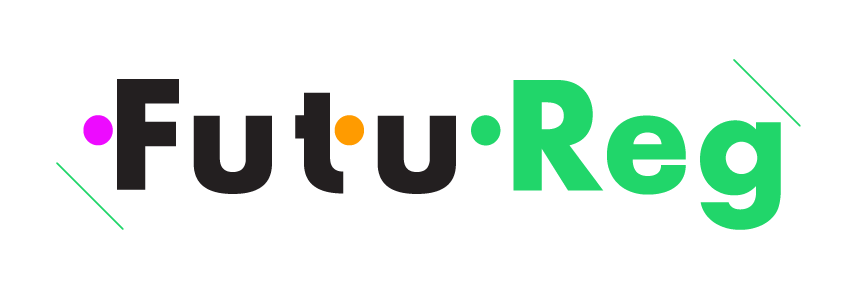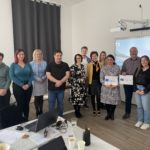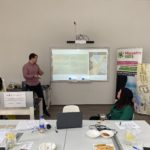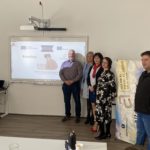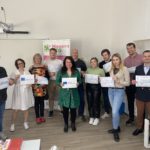On April 20th and 21st, the Primary School and High School in Bratislava hosted an event for the DIGIT4All Erasmus+ project, which invited civil organizations from Hungary and Slovakia. The goal of DIGIT4All is to help young people who are vulnerable to the challenges and dangers of the digital world with new, innovative perspectives and methods. The project includes topics such as recognizing false information, preventing cyberbullying, using digital devices properly, safe content sharing, and providing non-formal training for ten young people through a mentorship program. (The project number is 2022-1-SK02-KA210-YOU-000083196 and is supported by the European Union.)
The leading partner of DIGIT4All is the Slovak organization Futureg OZ, and its president, Livia Bott Domonkos, aimed to share practical methods and build relationships during the event’s opening on the first day. Katalin Morvay, the director of the Primary and High School in Bratislava, opened the event, and Krisztina Mészáros, the leader of the DIGIT4All project, introduced the program and its goal.
Zsuzsanna Sill, the head of the Primary and High School in Bratislava inclusive team, presented the school’s mentorship program and emphasized its methodological foundations and the students’ persistent work. On Thursday, one of the Hungarian guest speakers, Zsófia Kovács, an employee of the Foundation for Youth for the Nation, highlighted that several of their programs for young people are specifically designed to encourage attendance by those who are otherwise difficult to engage in online activities.
Tamás Csanda shared his thoughts on the work and activities of the boarding school operating in Bratislava. The institution not only offers boarding but also provides a supportive community that offers training and development opportunities for talented students beyond the school’s scope.
The organizers were pleased to have speakers who could share their experiences as young adults. On Friday, Vajk Pomichal, a doctoral student at the University of Nitra, gave a lecture on the achievements of the DIGEQ project, discussing new developments that help young people recognize false information.
Dominik Lelkes participated in the program on Friday and presented the "Together for the European Union" program. He believes that it is particularly important to introduce students to the real functioning and opportunities of the EU because we tend to rely on partial knowledge and dismiss it too easily.
Patrícia Zollei, a final year university student, gave a presentation entitled "Youth in the European Union". Several speakers provided us with excellent ideas, including Ivett Pavlis, who as a lawyer, mediator, and educator drew attention to new, non-formal teaching tools. The president of the Public Net Association was also our guest, who presented their activities, and Tamás Boros from the Alternative Association spoke about his experiences in Hungary regarding media correction procedures, which can be particularly important in the fight against fake news.
The two days were informative and important, including city tours and community building. The project is still open for young people who would like to learn and develop in this area alongside online training. The most persistent ones can travel to Szeged in August, where they can spend four nights and work on achieving their self-determined goals.
